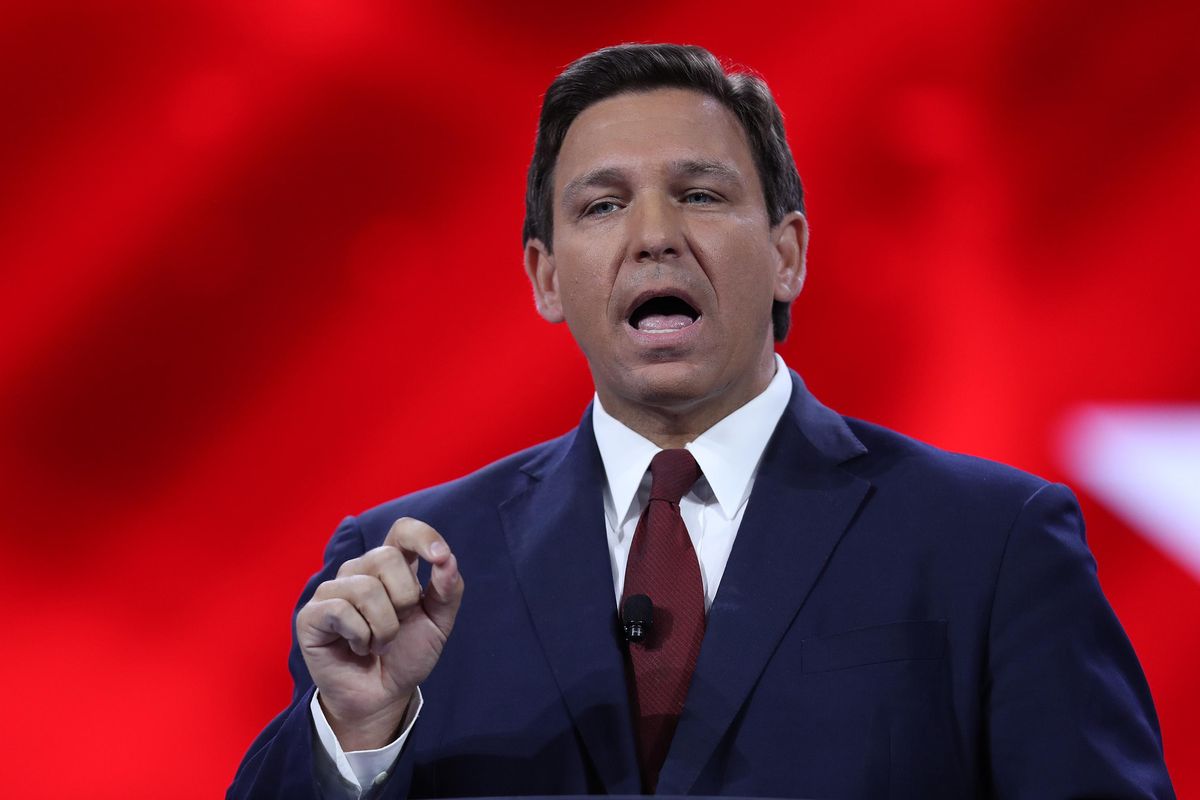Governor Ron DeSantis doesn’t seem to understand the critical race theory
"There's no room in our classrooms for things like critical race theory."

ORLANDO, FLORIDA - FEBRUARY 26: Florida Gov. Ron DeSantis speaks at the opening of the Conservative Political Action Conference at the Hyatt Regency on February 26, 2021 in Orlando, Florida. Begun in 1974, CPAC brings together conservative organizations, activists and world leaders to discuss issues important to them.
Florida Gov. Ron DeSantis (R) is seemingly not a fan of the critical race theory.
On Wednesday, the governor told reporters that the "leftist philosophy" will have no place in Florida public school classrooms.
Former President Donald Trump had similar sentiments. In September 2020, he halted critical race theory trainings in federal agencies, describing them as beliefs that are "contrary to all we stand for as Americans."
President Joe Biden has now reinstated them.
"There's no room in our classrooms for things like critical race theory," said the governor during a Covid-19 and education announcement. "Teaching kids to hate their country and to hate each other is not worth one red cent of taxpayer money."
Gov. @RonDeSantisFL announces Florida's curriculum will "expressly exclude...Critical Race Theory." “There's no ro… https://t.co/ihelJUwRyI— Washington Examiner (@Washington Examiner) 1616007455.0
According to the Associated Press, Gov. DeSantis' comments came during his speech announcing a $106 million proposal that outlined what he believed are acceptable topics to be taught in civics curricula.
Under his proposal, teachers who obtain credentials in teaching civics would get a $3,000 bonus. Some $16.5 million would be used to train teachers and principals in civics education and could come in the form of in-person seminars, virtual learning, and civics "coaches."
While hearing parts of his speech, I couldn't help but think that the governor is unaware of the critical race theory's true nature.

Let's briefly revisit the origins.
The critical race theory movement was cultivated in the '60s and '70s. However, it officially came to be in 1989 when notable figures such as Kimberlé Crenshaw, Neil Gotanda, and Stephanie Phillips got together for a workshop at the St. Benedict Center in Madison, Wisconsin.
They created this theory to offer the United States a way to recognize the effects historical racism has on modern life. It was also a way to examine how laws and systems perpetuated the inequality within marginalized groups within the nation.
So to say that this is a way to teach kids to "hate their country" and "hate each other" doesn't make sense because the intention is to understand human experiences concerning race, racism, and power. Not the encouragement of hate and division.
The theory also provides a way to consider how other marginalized identities—such as gender, sexuality, sexual orientation, and disability are often disregarded.
Overall, I believe that you can't teach specific aspects of history without accounting for the bigger picture. Regardless of the ugly truths.
What're your thoughts about the critical race theory?
Have you got something to say? Want to share your thoughts and experiences with the world? Submit a post to Conversations today.
- donald-trump - Indy100 Conversations ›
- Could Donald Trump win Against Meghan Markle in the presidential ... ›


